Joe Rogan pledges to try harder after Neil Young Spotify row
- Published
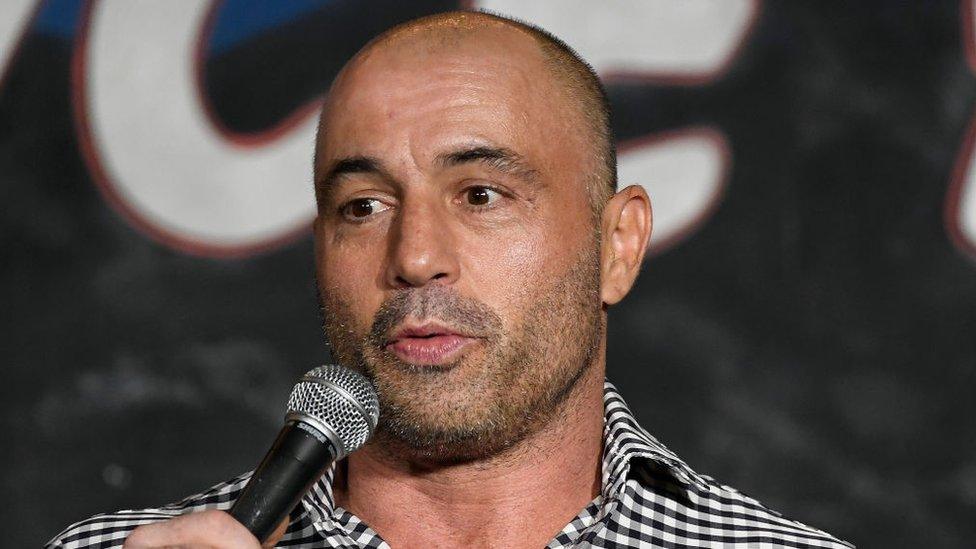
The Joe Rogan Experience is Spotify's most popular podcast
Joe Rogan has pledged to try harder to offer more balanced views on his podcast, after he was criticised by Neil Young and Joni Mitchell for helping to spread Covid misinformation.
The Canadian musicians asked to have their music pulled from the streaming platform as a result.
Spotify has since said it is working to add advisory warnings to any podcast discussing Covid-19.
US broadcaster Rogan apologised to the company and vowed to do better.
In an almost 10-minute long Instagram video, external posted on Monday, Rogan said he would "try harder to get people with differing opinions on" on his show - which averages 11 million listeners per episode.
Much of the controversy regards two recent episodes of Rogan's podcast, which featured the cardiologist Dr Peter McCullough and immunologist/virologist Dr Robert Malone.
Both expressed views that were contrary to mainstream information provided by the Centers for Disease Control and Prevention (CDC).
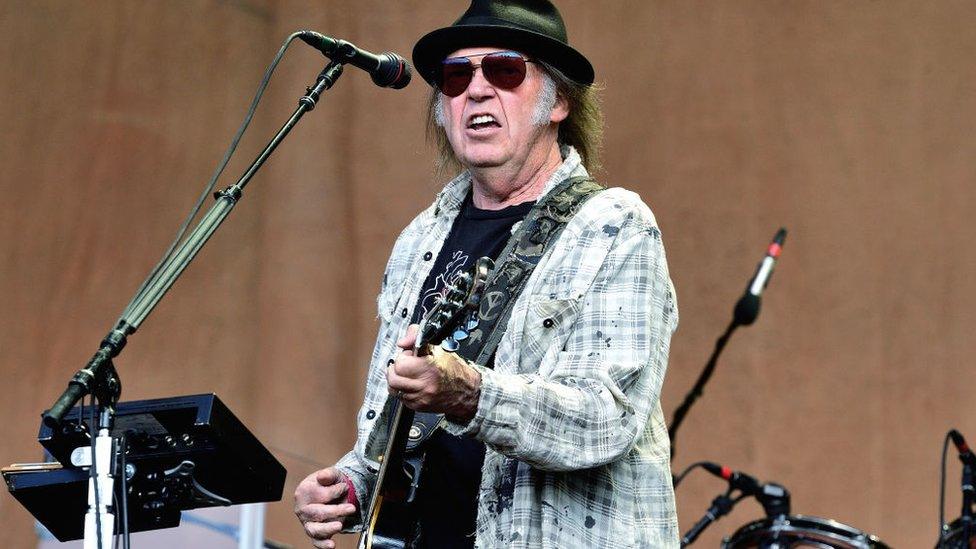
Neil Young's music is being removed from Spotify after the rock star called for the streaming platform to choose between him and Rogan
Rogan denied trying to spread misinformation, saying he had "never tried to do anything with this podcast other than just talk to people". But he also admitted "absolutely I get things wrong", and backed Spotify's plan to put a disclaimer at the start of controversial episodes.
"My pledge to you is that I will do my best to try to balance out these more controversial viewpoints with other people's perspectives, so we can maybe find a better point of view," he said, adding he had "no hard feelings" towards Young or Mitchell.
"I'm not mad at Neil Young, I'm a huge Neil Young fan," he said, noting his admiration for Mitchell's music as well.

Analysis by Marianna Spring, specialist disinformation and social media reporter
Pressure has mounted on social media sites to tackle harmful falsehoods and conspiracies about vaccines and Covid-19 throughout the pandemic.
Now the spotlight is on Spotify. Its new policy of labelling content about Covid-19, external - and the option to remove or suspend users and podcasts that promote dangerous falsehoods - is very similar to those adopted by Facebook, YouTube and Twitter many months ago.
Why is Spotify late to the party? In part, it's about the medium. Monitoring and labelling audio isn't quite so easy as tagging images or text posts.
And Spotify isn't a traditional social network - they don't just host Rogan's podcast, they're paying him a reported $100 million for the right to do so.
The social media giants say that they allow connections between users - and that they're not publishers. Spotify's relationship with Rogan is something altogether different.
People trust their favourite podcasts - and their hosts. They are often conversational, gripping and therefore a potentially effective vector for promoting disinformation.

Rogan said he would "do my best to make sure I've researched these topics... and have all the pertinent facts at hand" before discussing them on his podcast, while defending the credentials of several recent guests and vaccine-sceptics.
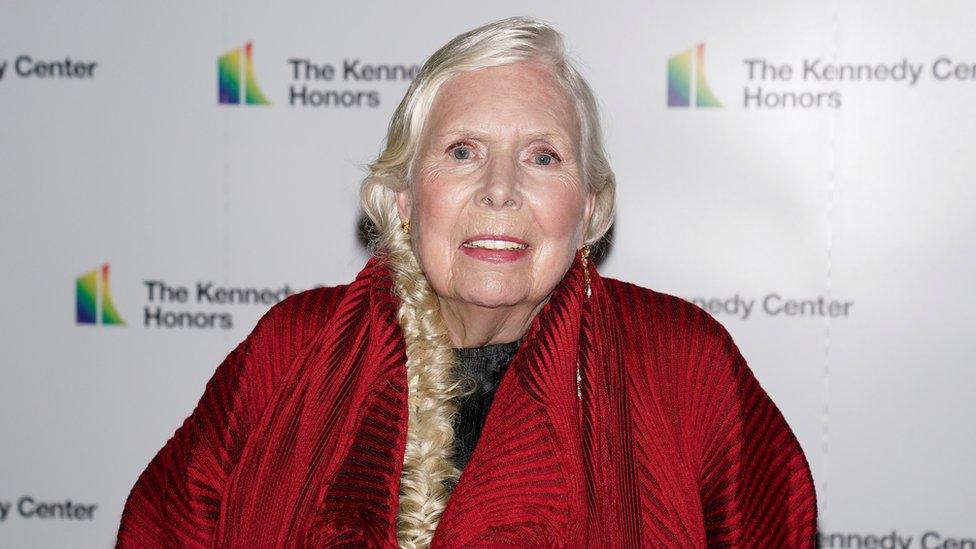
Joni Mitchell joined Neil Young in calling for her music to be removed from Spotify
He added that he had a problem with the term "misinformation", as new facts about Covid-19 were emerging all the time and stressed how he had also had guests on the show with more conventional ideas, including Dr Michael Osterholm, a member of President Joe Biden's Covid-19 advisory board.
"I want to thank Spotify for being so supportive during this time, and I'm very sorry that this is happening to them and that they're taking so much heat from it," he said.
'Provide balance'
On Sunday, Spotify CEO Daniel Ek pledged that new warnings will redirect users to a data hub of coronavirus facts.
The platform also published existing rules which bar the streaming giant's contributors from sharing false information that could cause harm.
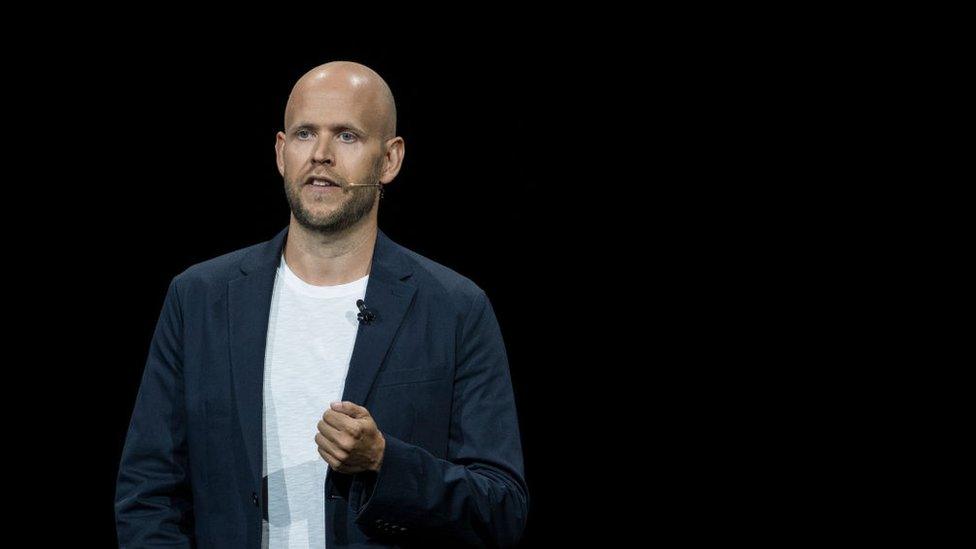
Spotify CEO Daniel Ek said he recognised that the company had an "obligation" to provide more balance on its platform
In a statement posted to Spotify's website,, external Mr Ek wrote that it has "become clear to me that we have an obligation to do more to provide balance and access to widely-accepted information from the medical and scientific communities guiding us through this unprecedented time".
Mr Ek said that the company had now published its long-standing "Platform Rules" - guidelines for creators on which content is considered unacceptable., external
They were developed by the company in conjunction with a team of external experts and are updated regularly, the Swedish billionaire said.
The rules say that creators should avoid content that "promotes dangerous false or dangerous deceptive medical information that may cause offline harm or poses a direct threat to public health".
'Concerning history'
These include suggesting that Covid-19 or other diseases are not real and encouraging people to deliberately get infected with coronavirus in order to build immunity.
Content which breaks the rules could be removed, and repeated violations could lead to an account being taken down.
In recent weeks the company has come under scrutiny over the views of its star host, Rogan, who reportedly agreed a $100 million deal to move his popular podcast exclusively onto the platform in late 2020.
Rogan has discouraged vaccination in young people and promoted the use of the unproven anti-parasitic drug ivermectin to treat the virus.
But he has also said he is "not an anti-vax person. I believe they're safe and encourage many people to take them."
Young called the site "the home of life-threatening Covid misinformation" in a post to his website on Wednesday.
The Duke and Duchess of Sussex have also relayed their "concerns" to Spotify over Covid misinformation but will continue to work with the platform.
In early January, a group of doctors, scientists and healthcare professionals signed an open letter, external to Spotify citing Rogan's "concerning history" in discussing the Covid-19 pandemic.
The Joe Rogan Experience is Spotify's most popular podcast, with a reported 200 million downloads a month.
Related topics
- Published27 January 2022
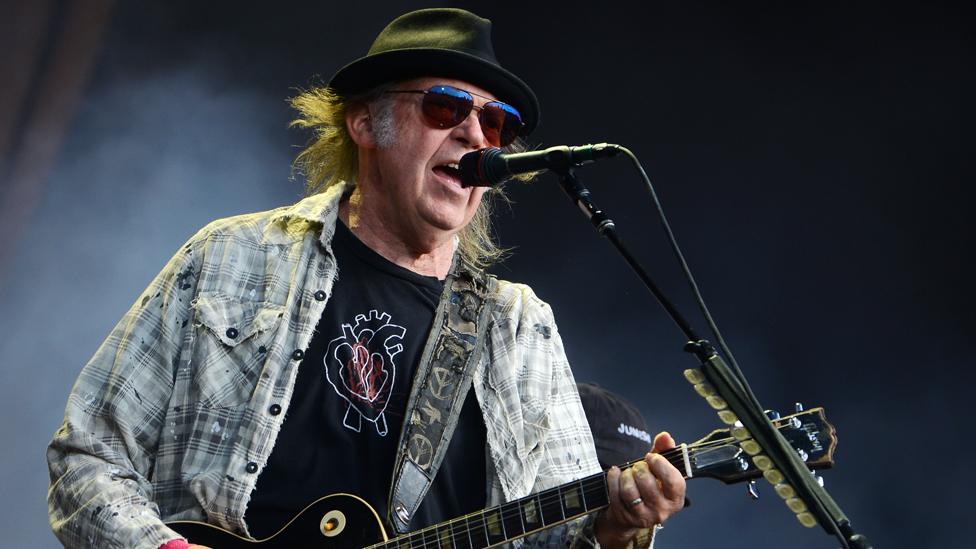
- Published29 January 2022
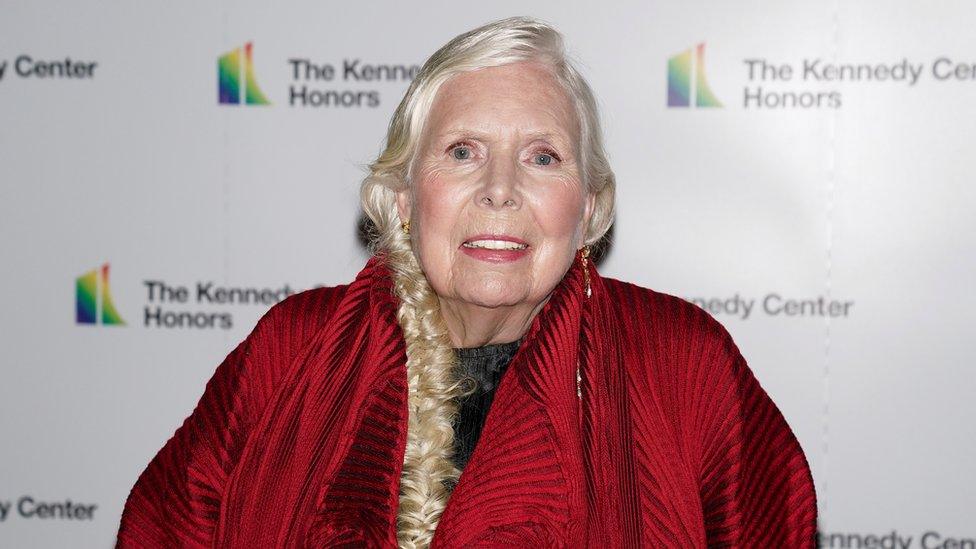
- Published30 April 2021
